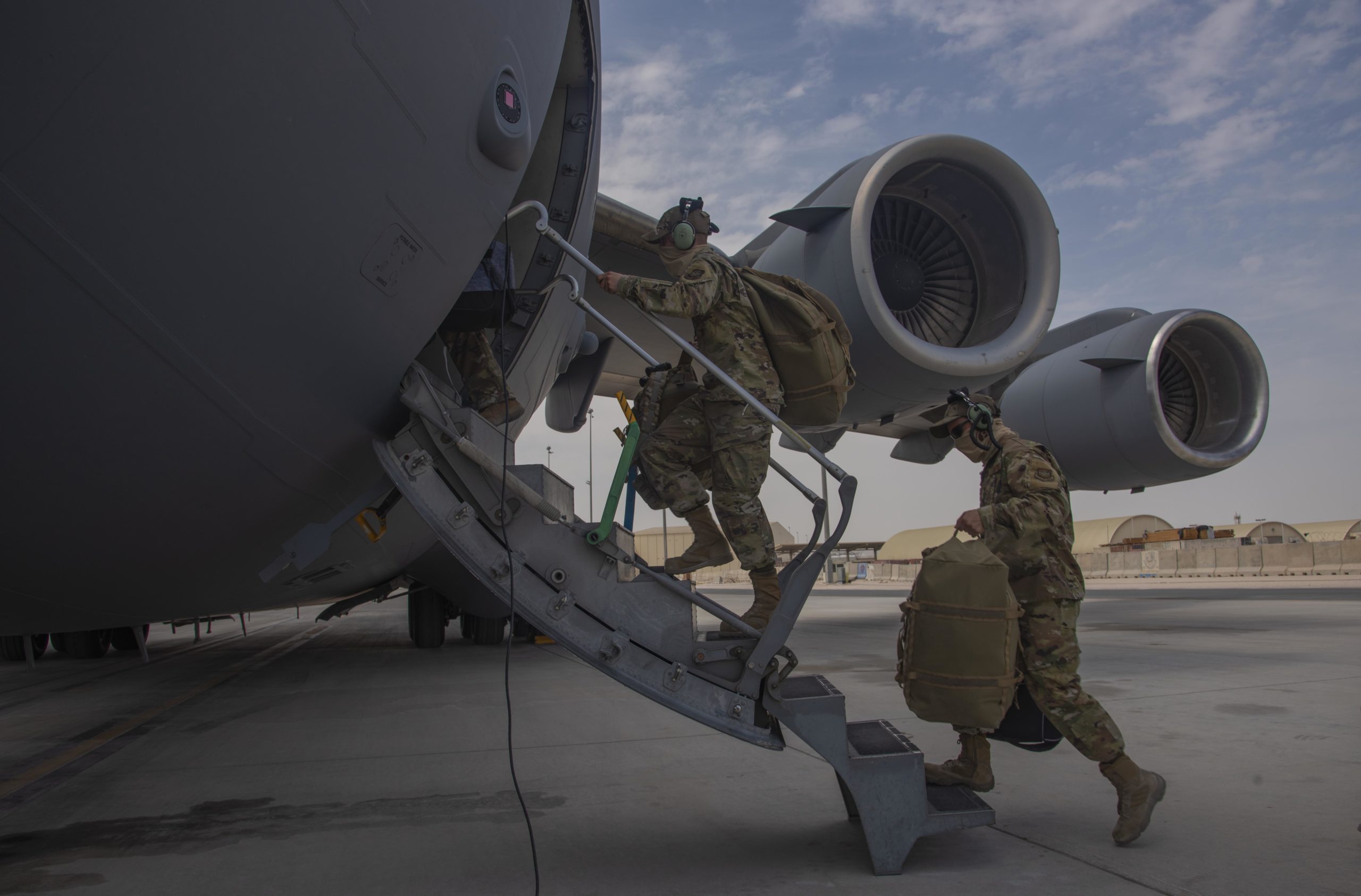
U.S airmen board a C-17 during Afghanistan troop withdrawal. Wikipedia photo.
Join the Asia Center and The Mittal Institute on Friday, September 10 at 9:00am for “Implications: Regional Perspectives on the US Withdrawal from Afghanistan.” This talk, an Asia Behind the Headlines Seminar, features international journalists as they share their thoughts and experiences surrounding the US withdrawal from Afghanistan.
We spoke with two of the discussants, Shubhanga Pandey and Shirin Jaafari, who each provided some pre-event commentary on the recent events in Afghanistan. Join them at the event to hear more from their own unique perspectives.

Shubhanga Pandey is the chief editor of Himal Southasian, a digital publication of South Asian politics, history, and culture. He has also written for other publications, including The World Politics Review, London Review of Books, Jacobin, and The Caravan.
Shubhanga Pandey
Chief Editor, Himal Southasian, Sri Lanka

Shirin Jaafari is a reporter for The World, a public radio program based in the US. Her reporting focuses on the Middle East and Afghanistan. Most recently, she was in Afghanistan to cover the US withdrawal. Shirin has also reported from Saudi Arabia, Jordan, Turkey, and the United Arab Emirates. Before joining The World, Shirin worked for the BBC in Washington DC.
The fate of a nation changed in August of this year. After two decades of military involvement in Afghanistan, American troops withdrew, and the Taliban took over. The speed at which these events took place took many by surprise. Maybe even the Taliban themselves.
Afghans are still grappling with what happened and what will come next. So are their neighbors. Iran, for example, shares about 600 miles of border with Afghanistan and is watching the events closely. The two countries share historical, cultural, and linguistic ties but the relationship between Iran and the Taliban is complicated.
So, what is at stake moving forward? Join us for the talk on September 10. I report on Iran and Afghanistan for the US public radio program The World. Likewise, I returned from Afghanistan days before Kabul fell.
Shirin Jaafari
Reporter, The World, USA
